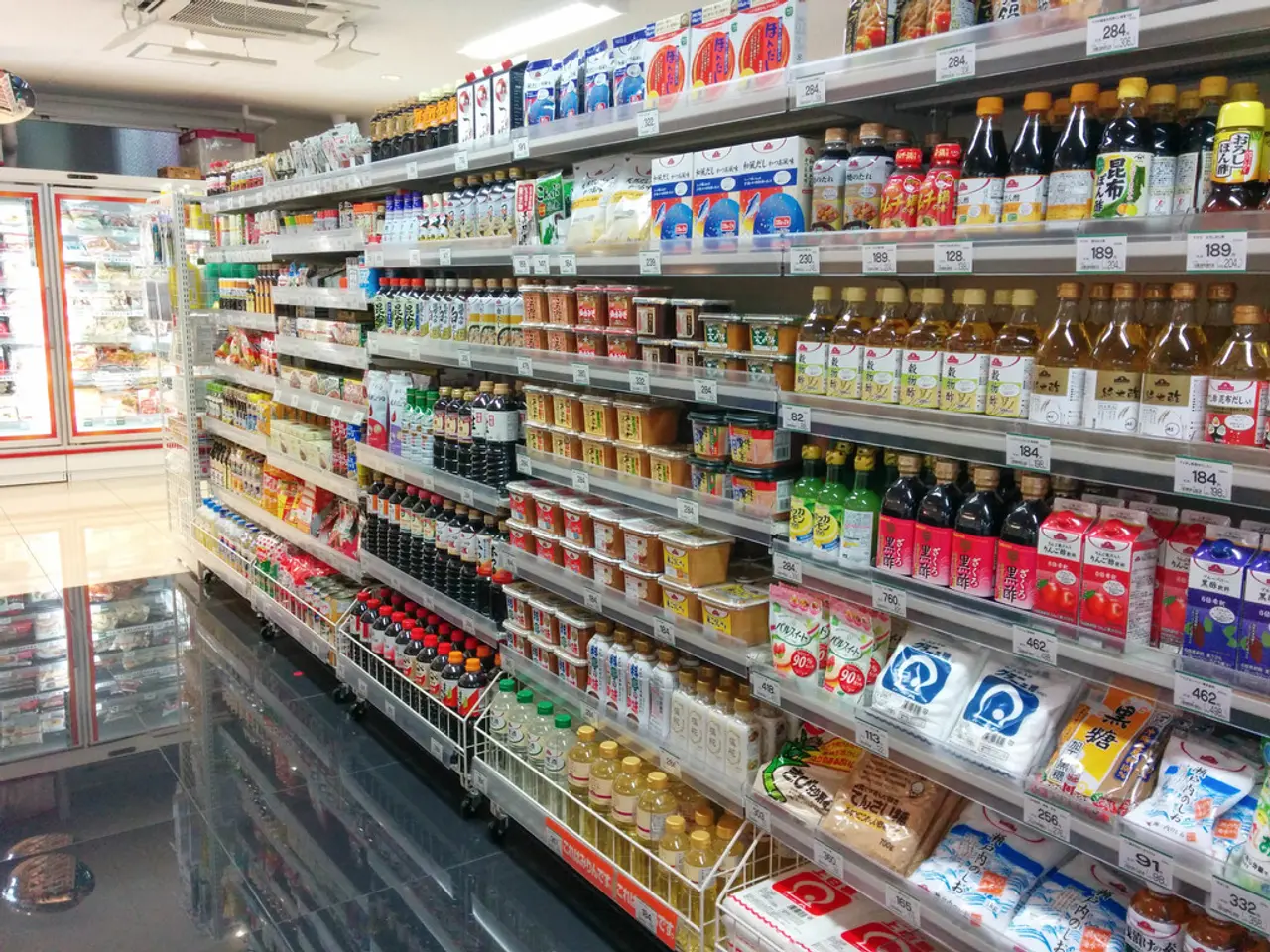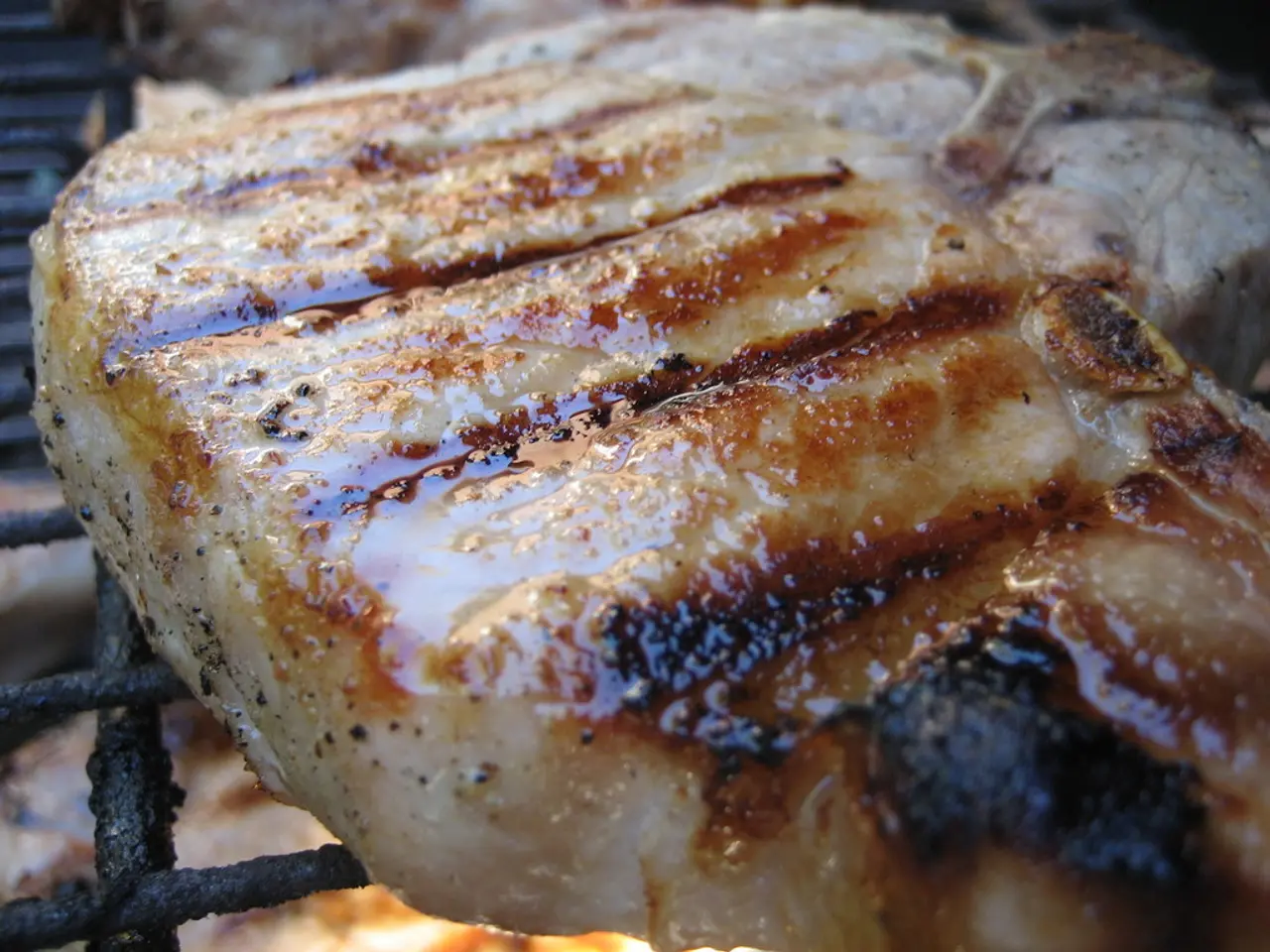Escalating inflation spurred by tariffs, as economists had cautioned, becomes evident
In a recent development, President Trump's tariffs have contributed to an increase in inflation and consumer prices, according to the latest Consumer Price Index (CPI) report. The CPI rose to 2.7% annually in June, up from 2.4% in May, reflecting the growing impact of tariffs on import prices, particularly on goods like apparel and household furnishings that are sensitive to import taxes.
The monthly increase in consumer prices saw a 0.3% rise from May to June. However, some items, such as new and used cars, hotel rooms, and airfares, became cheaper last month. Conversely, the cost of gasoline rose by 1% from May to June, and orange prices leaped 3.5% during the same period, making them 3.4% higher than a year ago.
The rising prices have affected various sectors. Walmart, the world's largest retailer, has raised prices in June, while companies like Nike and Mitsubishi have implemented "surgical" price hikes and lifted prices by an average of 2.1%, respectively, in response to duties.
The strong labor market conditions have helped consumers absorb some of the higher costs, but businesses are passing some import cost increases to consumers, indicating that tariffs are materially affecting prices. This has led to families cutting spending on food as prices rise, and the cost of rent rose by 3.8% in June compared to the same month the previous year, although this is the smallest yearly increase since late 2021.
Core inflation, excluding food and energy, increased by 2.9% in June compared to the same month the previous year. The Federal Reserve's preferred measure of inflation, the personal consumption expenditures index, is expected to rise from 2.1% to 3% over the remainder of 2025, partly due to tariffs.
The rising inflation data linked to tariffs has also affected the stock market, reflecting investor concerns about sustained inflation and economic uncertainty. Last week, Trump threatened to hit the European Union with a new 30% tariff starting Aug. 1, which could further escalate inflation concerns.
Democratic lawmakers believe that Trump's tariffs could lead to higher inflation, with Sen. Elizabeth Warren stating that Americans are struggling with the costs of groceries and rent due to rising prices. Trump has also threatened to impose 50% duties on Brazil, which could increase the cost of orange juice and coffee.
In summary, President Trump's tariffs have pushed up inflation and consumer prices, notably increasing the CPI and the cost burden on households, while influencing economic policy debates and market reactions. The ongoing tariff-related inflation could have significant implications for the economy in the coming months.
- The ongoing tariff-related inflation, as a result of President Trump's policies, is affecting multiple sectors, such as retail companies like Walmart and businesses such as Nike and Mitsubishi, who are passing some import cost increases to consumers by raising prices.
- The Federal Reserve anticipates that the preferred measure of inflation, the personal consumption expenditures index, will rise from 2.1% to 3% over the remainder of 2025, primarily due to tariffs, which could have significant implications for the economy in the coming months.




